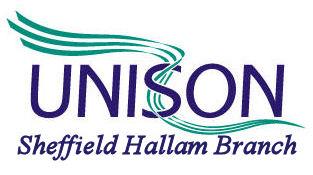Colleagues will be aware of the strike action taken earlier in the year by UCU (the academics’ trade union), in defence of the USS pension scheme. More information about that can be found here: https://www.ucu.org.uk/strikeforuss. The USS scheme is mainly found among pre-1992 Universities, where professional services staff may also be scheme members. Here at SHU, most professional services staff will be in the Local Government Pension Scheme (LGPS), and the vast majority of teaching staff will be in the Teachers Pension Scheme (TPS).
The TPS is not just a higher education scheme, it is the default scheme for teachers in state-funded schools as well as many FE colleges. And unlike the LGPS, which is a “funded scheme” (this means that employer and employee make contributions to a fund which is then invested), the TPS is an “unfunded” scheme paid out of general taxation.
In October, the Treasury published information about the actuarial valuation of the scheme and announced that employer contributions would rise from 16.48% to over 23% – about a 40% increase in costs. Employee contributions are linked to pay rates, but the average employee contribution is 9.6%.
Apparently schools will receive some help with these additional costs, at least (but only) for the first year. But there is no such help for Universities, leaving higher education employers facing an unexpected and unwelcome and very significant hike in staff costs.
USS Members in Pre-92 Universities
Meanwhile USS members have now been told that their scheme is in a better position than previously thought. The ‘Joint Expert Panel’ convened earlier this year at the end of the dispute found shortcomings in the 2017 valuation that led to the aborted attempt to move to Defined Contribution. This was exactly as many UCU activists suspected all along, and they have been thoroughly vindicated in their decision to strike. Following the re-valuation, universities have now indicated their support for accepting ‘greater risk’ within the scheme (i.e. valuation rules less likely to favour their agenda), and employer contributions will only have to rise by a small amount to safeguard members’ benefits.
So we are now in the exact opposite position as we found ourselves in at the beginning of the year, where USS members were preparing to walk out, and looking longingly at their pre-1992 academic colleagues’ “safe” pensions.
Meanwhile, attacks on the pensions of professional services staff are becoming more common across the sector.
LGPS and University Pension Schemes
At Southampton University a proposal to close the final-salary PASNAS scheme and replace it with a defined contribution scheme was withdrawn as a result of collective action, meaning that existing scheme members retained final-salary benefits, but the scheme was closed to new members.
At the University of Manchester, a consultation on the future of the University of Manchester Superannuation Scheme (UMSS) was launched over the summer, on the back of an actuarial valuation which said the scheme was in deficit to the tune of £207m. About 4000 support staff are members of the defined benefit scheme, which currently has a final salary section and a career average revalued earnings (CARE) section. The proposed changes would close the scheme to new starters, who would join a new defined contribution scheme instead, and move existing scheme members from a final salary scheme (which would close) to an inferior career average scheme (which would replace the existing CARE section). In a consultative ballot, 89% of UNISON members who voted indicated support for industrial action in opposition to the changes.
The Ongoing Dispute at Staffordshire University
Finally, in May this year Staffordshire University management informed the local UNISON branch of their intention to transfer their administrative staff (grades 1-6) from the Local Government Pension Scheme to an inferior private scheme. To achieve this goal they took the step of transferring administrative staff out of direct employment and into a Wholly Owned Subsidiary (Staffordshire University Services Limited).
One month of consultation was given to staff to voice their views on the proposed changes. The branch were informed of the proposals very shortly before the consultation began. Following the close of the consultation period the changes went ahead as planned.
These changes will leave many low-paid staff in ‘pension poverty’, and disproportionately affect low-paid female workers. It has been calculated that some staff may lose up to £10,000 per year in their retirement.
Staffordshire University UNISON branch comments that: “This is a targeted and unfair attack on the future of the lowest paid members of staff leading to uncertain retirement, a retirement the workers have planned and paid for.”
In response our colleagues at Staffordshire have taken 5 days of staggered industrial action between August and October. So far, Staffordshire University management have refused to return to talks. More industrial action is planned.
We will be raising a motion in support of our colleagues at Staffordshire at our next Branch Committee, which includes a proposal to make a donation to their hardship fund. This will go towards supporting low-paid members in the next round of action.
We also strongly encourage members to contribute to the hardship fund. The Staffordshire Branch’s bank details are given below:
Bank Name: Unity Bank
Sort Code: 608301
Account Number: 20024820
Article by Rich Nind & Dan Bye






 We are seeing the biggest rise in support for fascism, the far right, racism, Islamophobia and Antisemitism since the 1930s.
We are seeing the biggest rise in support for fascism, the far right, racism, Islamophobia and Antisemitism since the 1930s.